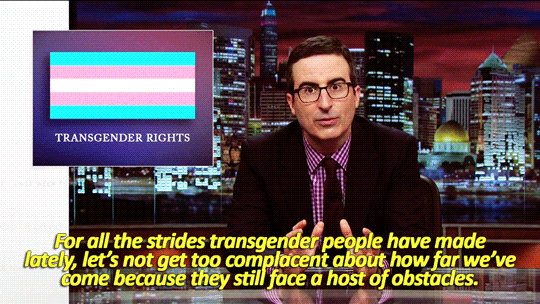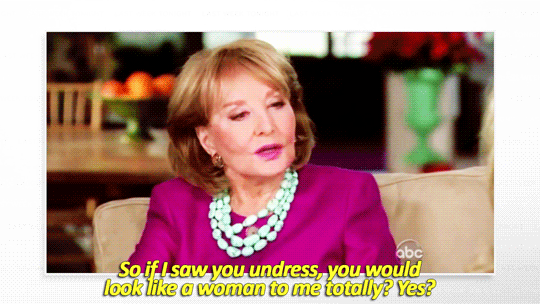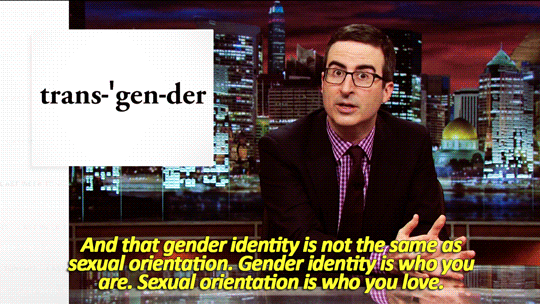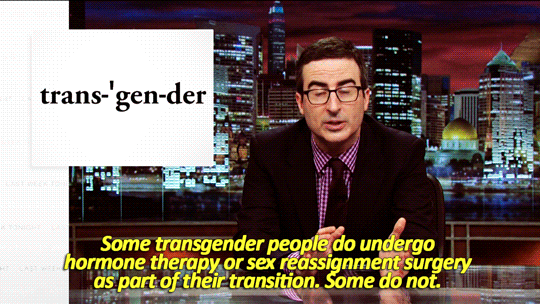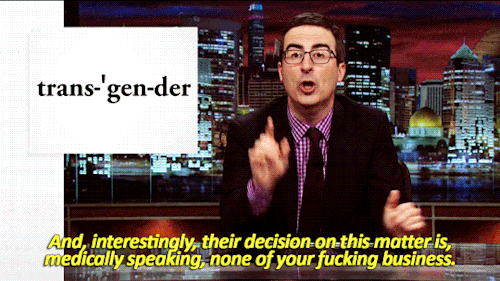Writing Tip: Don’t Tell Us Your Character’s Backstory. Don’t Tell Us What Your Character Is Thinking.
writing tip: don’t tell us your character’s backstory. don’t tell us what your character is thinking. don’t tell us what your character is doing. don’t tell us anything. the reader should simply look at a blank page and be suddenly overcome with emotion.
More Posts from Snowwritings and Others
when I was 14 I worked in a grocery store and one day I got to bag Stephen King’s groceries and of course, being the little horror fiction nerd I am I was completely starstruck
I think he thought I was gonna ask for an autograph because I was not even lowkey staring I was full on moon-faced and bouncing and he kept looking over at me hesitantly like aw jeez kid fuck off
anyways I finally managed to squeak out that I was a huge fan and asked for advice on writing, “how do I write as well as you do?” in my horrible thick German accent and broken ass English and he gave me the best writing advice I have ever received
“shit kid, stop worrying about how other people do it and just write your story”
14 years later my wife and I nearly hit him with our car because he was jaywalking
Women have more power and agency in Shakespeare’s comedies than in his tragedies, and usually there are more of them with more speaking time, so I’m pretty sure what Shakespeare’s saying is “men ruin everything” because everyone fucking dies when men are in charge but when women are in charge you get married and live happily ever after
Anon or not, make me choose between:
Show: _______ or ________ ?
Character: ________ or _________ ?
Pairing: _________ or _________ ?
Anything: ________ or _________ ?
Fanfic writer: And publish! Finally got this story out now I can sleep. Hmm, maybe I should wait for a review.
Fanfic writer: *refreshes 2000 times.“
*20 minutes later*
Reviews: *1+ review*- Good story
Fanfic Writer: DEAR WHAT’S YOUR FACE YOU ARE THE GREATEST PERSON TO EVER BE BORN. I PERSONALLY THANK YOUR MOTHER FOR GIVING BIRTH FOR YOU. YOU ARE THE ONLY THING THAT GIVES ME LIFE.
Me: -stares into the void-
The Void: write the next fucking chapter of your fanfic.
Me writing fanfic:
Too, many, commas,,,
Is this ooc??
I used that word already
Do people even blush this much??
*squints* Is that canon?
Tropes
*cries while writing death scene*
Wait what happened last chapter?
I wrote like a thousan- 354 words!?
*googles the lifespan of a tropical fish*
have I spelt his name wrong all this time?
Would they say that tho?
Changes plot 539932 times
Loses inspiration, goes back to tumblr
Pros and Cons of Different Points Of View

Objective Point Of View
“With the objective point of view, the writer tells what happens without stating more than can be inferred from the story’s action and dialogue. The narrator never discloses anything about what the characters think or feel, remaining a detached observer.”
Pros
Adds a potentially useful suspense to the events of the story, as the reader cannot predict as easily what will happen next based on the characters’ internal thoughts.
More direct with the events and description of elements of the story, such as setting and the rate at which time passes in the story, which can be muddled in stories in points of view like third person, where these details can be overshadowed by descriptions of thoughts, feelings, backstory, etc.
Descriptions can come across more fluidly and make the actual images and scenes visualize more easily in the readers head. It is the closest point of view to a movie, as films don’t typically focus on what the audience is explicitly being told, but what they see and what they can deduce from the images in front of them.
Cons
This point of view can be more difficult to relate to as readers, due to the story being told and described in a more detached way, rather than being pulled into the story in a way that makes them feel like a character themselves.
You have to really utilize subtext and context with this perspective. You can’t convey the story’s tone through any of the characters’ thoughts or feelings, so you have to rely completely on the pure course of events to tell the story and grip the reader emotionally.
This makes it really hard to connect to the characters and understand their motivations unless the reader is looking really deep into the context and reading between the lines.
Third Person Point Of View
“Here the narrator does not participate in the action of the story as one of the characters, but lets us know exactly how the characters feel. We learn about the characters through this outside voice.”
Pros
This is pretty much exactly like first person narration, but with different pronouns. Instead of “I walked to the store” it’s “he walked to the store” and eliminates the reader’s potential skepticism of the narrator’s reliability while still telling the story in the same words.
You have the potential to divulge more about what other characters are thinking or doing at any point in time because you’re not technically limited to one character.
It’s a pleasing way of telling a story. It doesn’t take too much analysis for the reader to imagine how the perspective could be tainted by emotion in some way. It doesn’t require too much brain power to read. It flows nicely.
Cons
This isn’t as much a con as it is a warning. Your characters need to be rounded and diverse if you’re going to write a story in third person. If they all share the same characteristics and motivations and emotions, your story will fall flat super fast.
Third person has a viewpoint character, typically. If you want to be able to tell whatever you want about whomever you want, then you need an omniscient point of view. Third person usually focuses on a main character and occasionally shares about other characters when it serves the story.
Second Person Point Of View
“Second person is a point of view (how a story is told) where the narrator tells the story to another character using the word ‘you.’ The author could be talking to the audience, which we could tell by the use of 'you,’ 'you’re,’ and 'your.'”
Pros
Your reader feels what you write so much more intensely, because you’re referring to them specifically. It’s a reader insert point of view. You’re speaking directly to them.
Action and romance are really good genres for this, I imagine, because those are stories where readers often put themselves in the place of the protagonist anyway, so second person would amplify that to your advantage.
There works so well when it’s done correctly, and if you take the time to practice with it and master the pacing and what really makes a reader tick in second person point of view, it will grab that reader and pull them very, very quickly.
Cons
You usually have to be really really vague about descriptions. If your reader doesn’t have blonde hair and hazel eyes, but your character does, this will really put a damper on their experience because every time you describe how their blonde hair blows in the wind, they’ll detach from the story.
Sometimes your reader may feel confused because second person is a very hard point of view to read about at first. It takes some time to get used to. A lot of fanfiction (mainly reader-insert) is second person point of view and I’ll be the (not) first to say that it took so time to adjust to, at least for me.
First Person Point Of View
“In the first person point of view, the narrator does participate in the action of the story. When reading stories in the first person, we need to realize that what the narrator is recounting might not be the objective truth. We should question the trustworthiness of the accounting.”
Pros
Is not limited to the point of view of the main character, as displayed in books such as The Great Gatsby by F. Scott Fitzgerald.
A certain connection between the reader and the character can create a sense of authenticity and intimacy between the reader and the story as a whole.
The themes and motives behind the story can become easier to decode, as they are disclosed in a more clear and direct manner.
The character can be easier to understand and relate to, as everything is being told by them, with their bias and interpretation included.
It puts the reader inside of the story rather than having them watch from the outside. The intimate details and description can make put them in a position to experience the story from inside and therefore make the story mirror their reality in a way.
Cons
It may become difficult for the reader to differentiate who is speaking to them in the story, as many sentences will begin with “I” or “we” and create a repetitive narration and lose the reader alone the way.
The reader may become bored with hearing the story from only one’s perspective. The style in which the story is told {the adjectives, the themes, the personality} may not vary enough to keep them entertained.
Imagery can be difficult to pull off in this point of view because the writer may get into the habit of telling the reader what is happening instead of showing them through smooth interjections of descriptive vocabulary.
The writer may experience a dependence on dialogue to try to compensate for lack of description of events, and the reader may lose track of story details that may become imperative to events later in the scene/story.
This makes it a lot easier to pull an “unreliable narrator”, as first person is only the perspective of a person, rather than the story told from a purely factual position.
Omniscient & Limited Omniscient Points of View
“A narrator who knows everything about all the characters is all knowing, or omniscient. A narrator whose knowledge is limited to one character, either major or minor, has a limited omniscient point of view.”
Pros
This makes it really easy to include details about many characters that you wouldn’t be able to from the perspective of a single person.
You are writing as yourself. You are the author, you have all the information to give the reader, and you get to give it in the least convoluted way you could ever desire, and in your own words. In any other point of view, you are pretending to be somebody else, even in third person, so this allows you to really demonstrate your unique voice as a writer and express your own style.
You can write fast paced scenes without the reader questioning what an individual character is feeling all the time. You can slip in whatever information you want at whatever point you wish and it just sounds natural to the reader.
Cons
Plot twists are ten times more difficult because there’s no reason why anything would be a surprise. Your reader technically has access to all information and foreshadowing required to predict what will happen next, so if you’re planning a big surprise, prepare for a challenge delivering it.
Keeping the focus on one subject is more important when you’re writing for younger, less experienced readers. You have to have a protagonist and a linear story for them to follow, which can be tricky with omniscient point of view. It’s important to keep your audience in mind if you’re going to choose any point of view, but especially this one.
These pros and cons are subjective, depending on what you are intending to convey in your story. Please consider this with a grain of salt and take the detail and unique qualities of your own work into account when using this resource. Not all pros and cons in this piece will apply the same to every story, and that is something to keep in mind. I hope this will be useful to you all. Cheers!
Ext. Sources ~ x x x x
Support Wordsnstuff!
If you enjoy my blog and wish for it to continue being updated frequently and for me to continue putting my energy toward answering your questions, please consider Buying Me A Coffee.
Request Resources, Tips, Playlists, or Prompt Lists
Instagram // Twitter //Facebook //#wordsnstuff
FAQ //monthly writing challenges // Masterlist
MY CURRENT WORK IN PROGRESS (Check it out, it’s pretty cool. At least I think it is.)

Little tribute to the rover that’s had me emotional all day… RIP Oppy.
-
 darkswamplurker liked this · 1 week ago
darkswamplurker liked this · 1 week ago -
 aeridea liked this · 1 week ago
aeridea liked this · 1 week ago -
 cardboardcupcake reblogged this · 2 weeks ago
cardboardcupcake reblogged this · 2 weeks ago -
 pinetreelady reblogged this · 2 weeks ago
pinetreelady reblogged this · 2 weeks ago -
 artificer-real liked this · 2 weeks ago
artificer-real liked this · 2 weeks ago -
 aroaceinaspace liked this · 3 weeks ago
aroaceinaspace liked this · 3 weeks ago -
 hoodiemanic liked this · 1 month ago
hoodiemanic liked this · 1 month ago -
 un-amorost liked this · 1 month ago
un-amorost liked this · 1 month ago -
 lackofmatona liked this · 1 month ago
lackofmatona liked this · 1 month ago -
 reinetteslonelyangel reblogged this · 1 month ago
reinetteslonelyangel reblogged this · 1 month ago -
 newt-inside-my-mindpalace liked this · 1 month ago
newt-inside-my-mindpalace liked this · 1 month ago -
 eowyn7023 liked this · 1 month ago
eowyn7023 liked this · 1 month ago -
 phdinpessimism liked this · 1 month ago
phdinpessimism liked this · 1 month ago -
 failing-at-life-rip reblogged this · 1 month ago
failing-at-life-rip reblogged this · 1 month ago -
 failing-at-life-rip liked this · 1 month ago
failing-at-life-rip liked this · 1 month ago -
 lireb-librarian liked this · 1 month ago
lireb-librarian liked this · 1 month ago -
 thescruptwriterthingsiguess liked this · 1 month ago
thescruptwriterthingsiguess liked this · 1 month ago -
 piteousfangirl reblogged this · 1 month ago
piteousfangirl reblogged this · 1 month ago -
 badrussia reblogged this · 1 month ago
badrussia reblogged this · 1 month ago -
 raiswanson reblogged this · 1 month ago
raiswanson reblogged this · 1 month ago -
 thalzad reblogged this · 1 month ago
thalzad reblogged this · 1 month ago -
 hiimnatt liked this · 1 month ago
hiimnatt liked this · 1 month ago -
 lonewolfinthetardis liked this · 1 month ago
lonewolfinthetardis liked this · 1 month ago -
 tenmiceinacoat liked this · 1 month ago
tenmiceinacoat liked this · 1 month ago -
 rightventricle reblogged this · 1 month ago
rightventricle reblogged this · 1 month ago -
 rightventricle liked this · 1 month ago
rightventricle liked this · 1 month ago -
 cacneaz liked this · 1 month ago
cacneaz liked this · 1 month ago -
 brynalyn reblogged this · 1 month ago
brynalyn reblogged this · 1 month ago -
 chaoticgremlinbrainspace reblogged this · 1 month ago
chaoticgremlinbrainspace reblogged this · 1 month ago -
 mystery-wings liked this · 2 months ago
mystery-wings liked this · 2 months ago -
 jinxie131 liked this · 2 months ago
jinxie131 liked this · 2 months ago -
 confusedanon reblogged this · 2 months ago
confusedanon reblogged this · 2 months ago -
 labyrinthdancer liked this · 2 months ago
labyrinthdancer liked this · 2 months ago -
 whatvioletdoes-blog reblogged this · 2 months ago
whatvioletdoes-blog reblogged this · 2 months ago -
 winstonta reblogged this · 2 months ago
winstonta reblogged this · 2 months ago -
 summonerluna reblogged this · 2 months ago
summonerluna reblogged this · 2 months ago -
 theangelicstoryteller reblogged this · 2 months ago
theangelicstoryteller reblogged this · 2 months ago -
 louwhose reblogged this · 2 months ago
louwhose reblogged this · 2 months ago -
 geeksthetics reblogged this · 2 months ago
geeksthetics reblogged this · 2 months ago -
 kangaroo-r00 reblogged this · 2 months ago
kangaroo-r00 reblogged this · 2 months ago -
 kangaroo-r00 liked this · 2 months ago
kangaroo-r00 liked this · 2 months ago -
 adaptingant reblogged this · 2 months ago
adaptingant reblogged this · 2 months ago -
 nick--knack liked this · 2 months ago
nick--knack liked this · 2 months ago -
 just-random-guy reblogged this · 2 months ago
just-random-guy reblogged this · 2 months ago -
 the-history-chap liked this · 2 months ago
the-history-chap liked this · 2 months ago -
 a-literal-frog reblogged this · 2 months ago
a-literal-frog reblogged this · 2 months ago -
 normalofficeworker reblogged this · 2 months ago
normalofficeworker reblogged this · 2 months ago -
 nottherrealmax liked this · 2 months ago
nottherrealmax liked this · 2 months ago

Sofia. She/her. Writer, thinker, listener, trans woman, and supporter of the Oxford Comma.
172 posts

